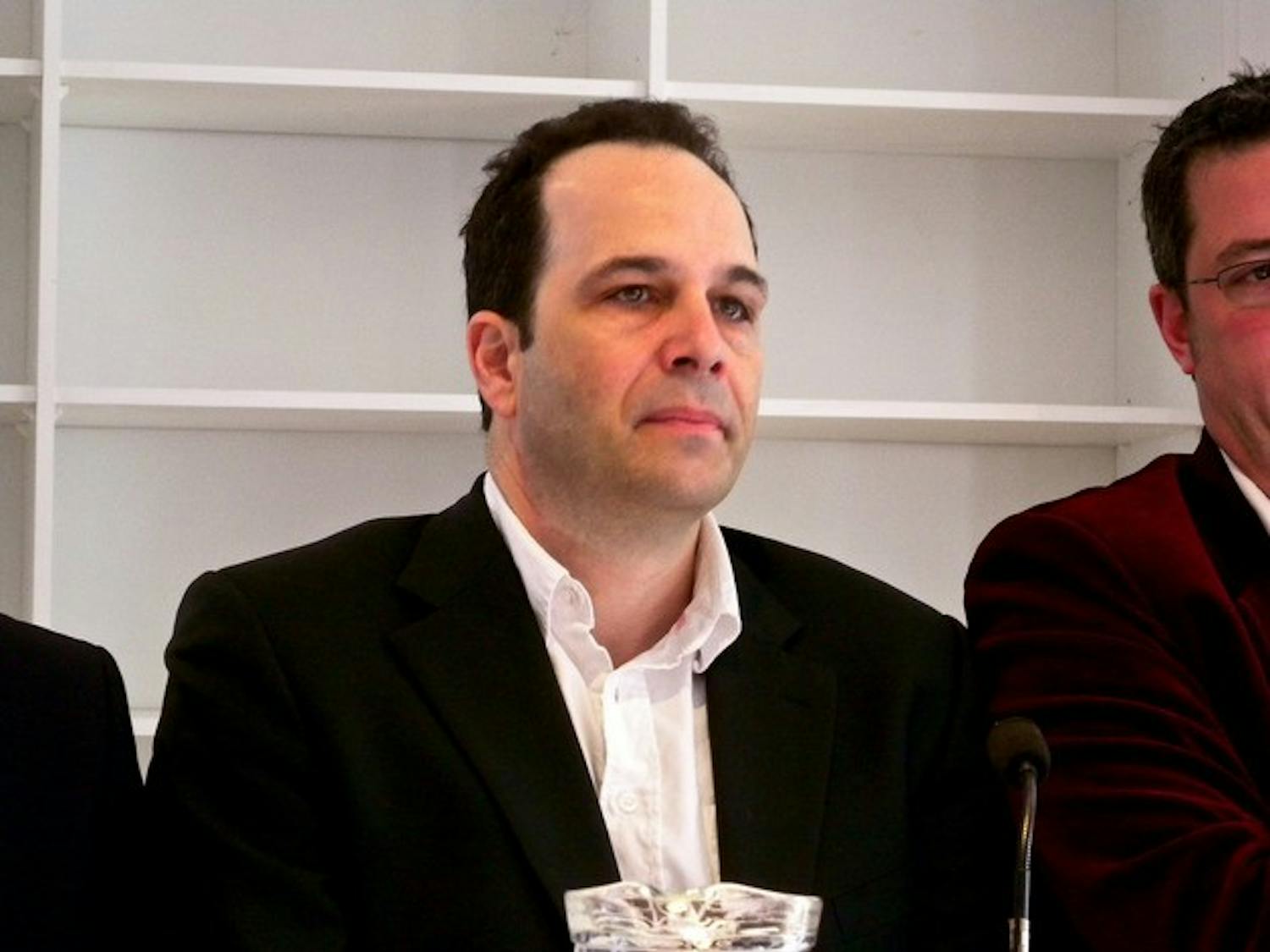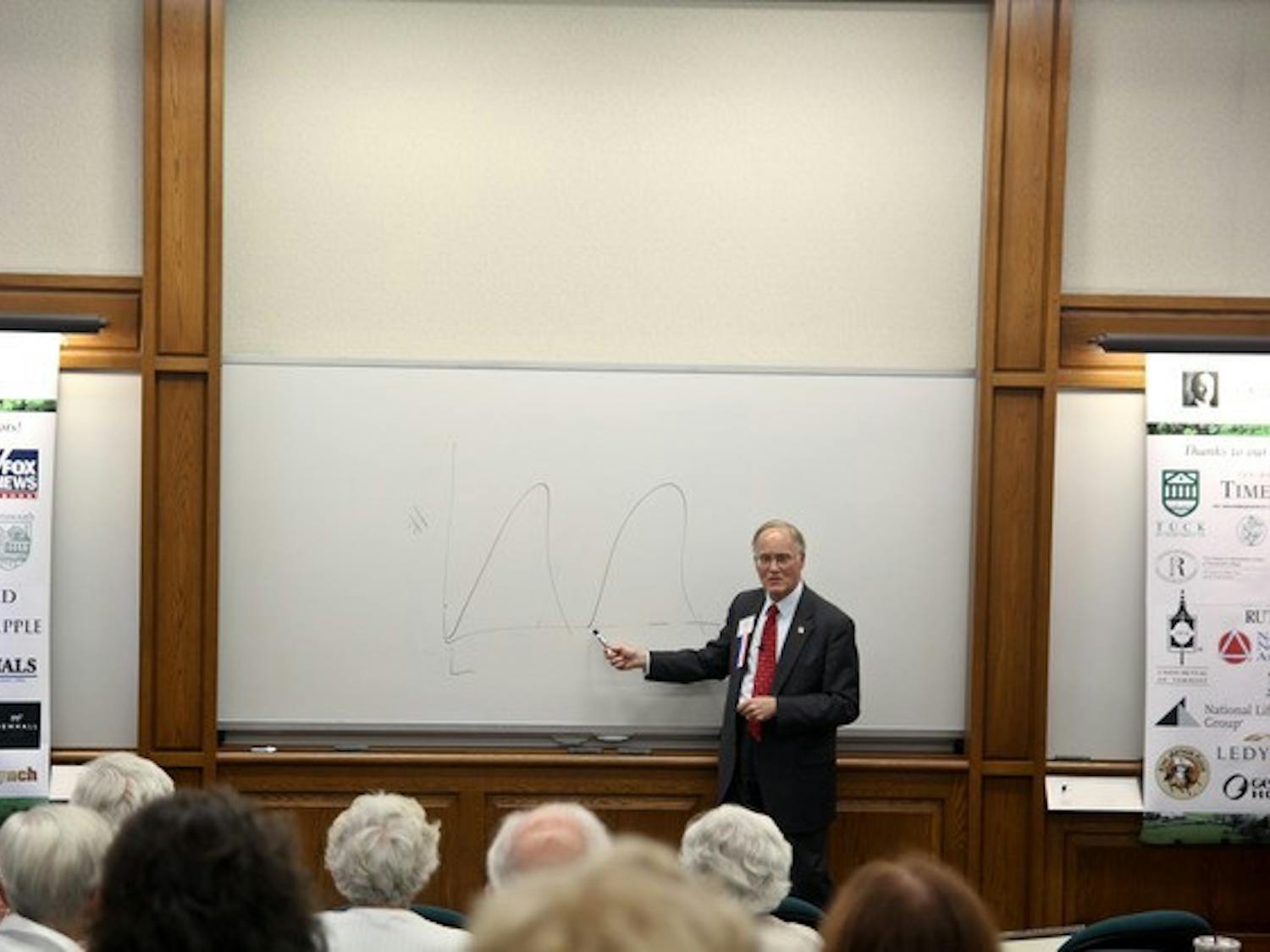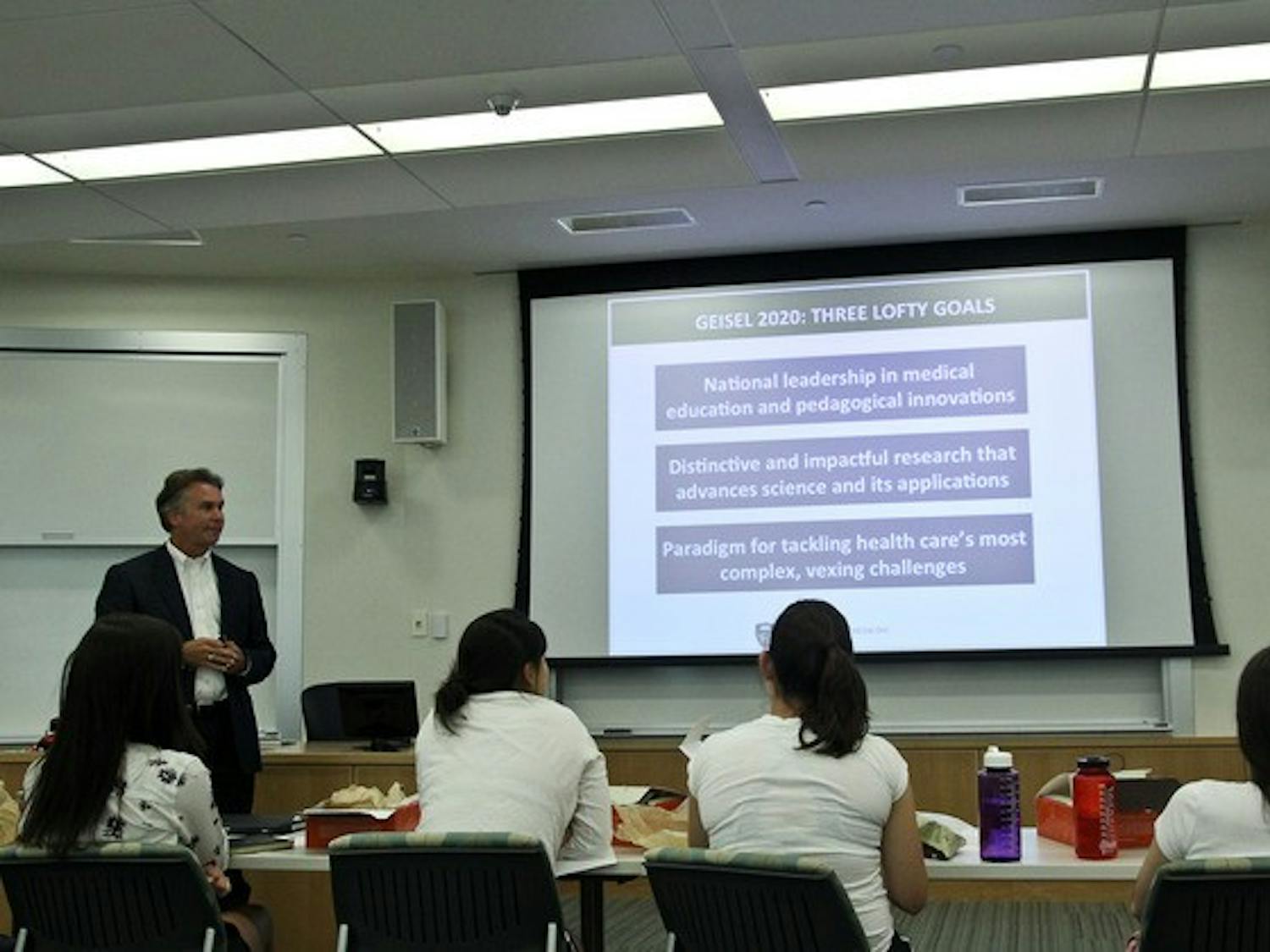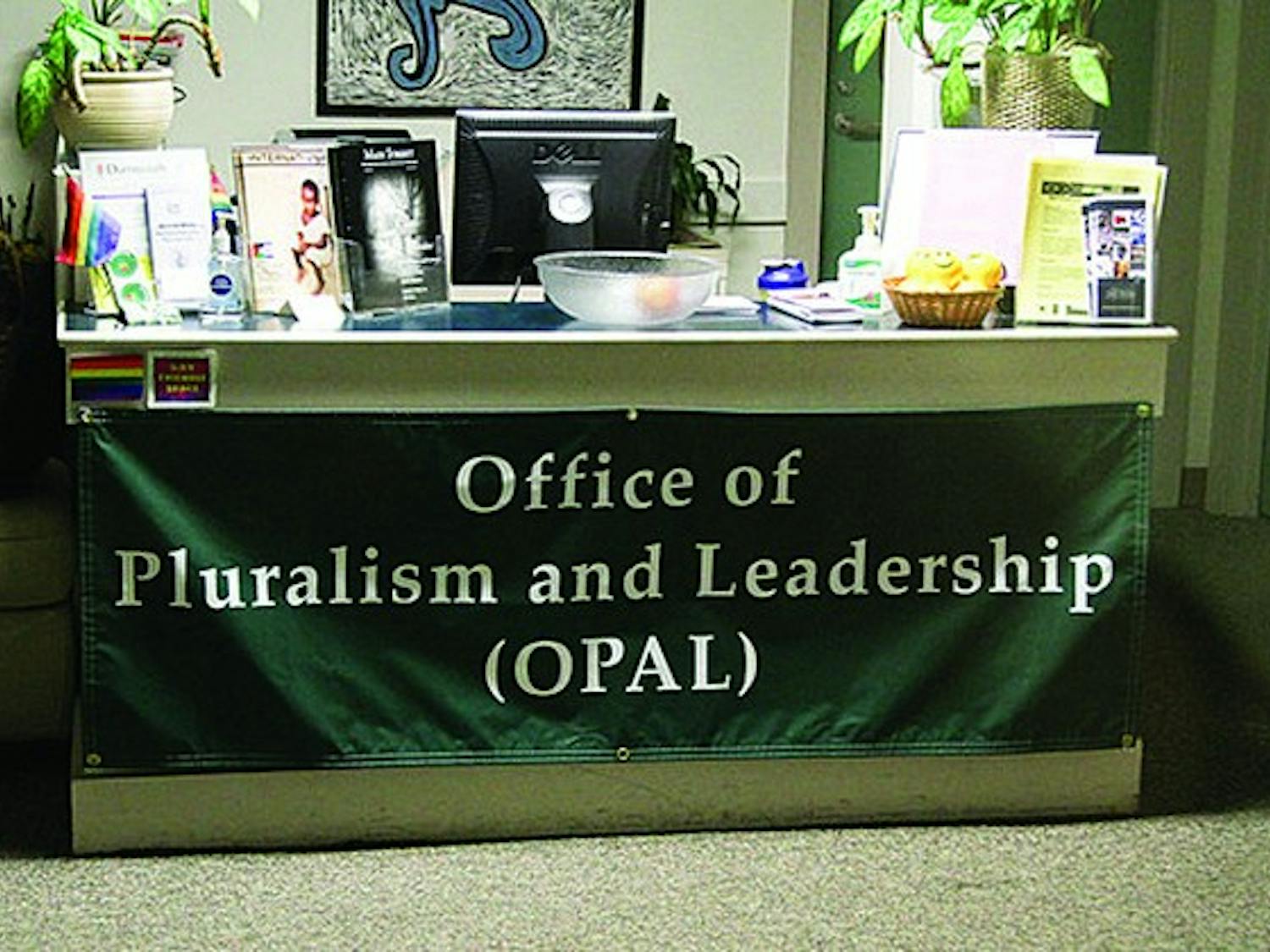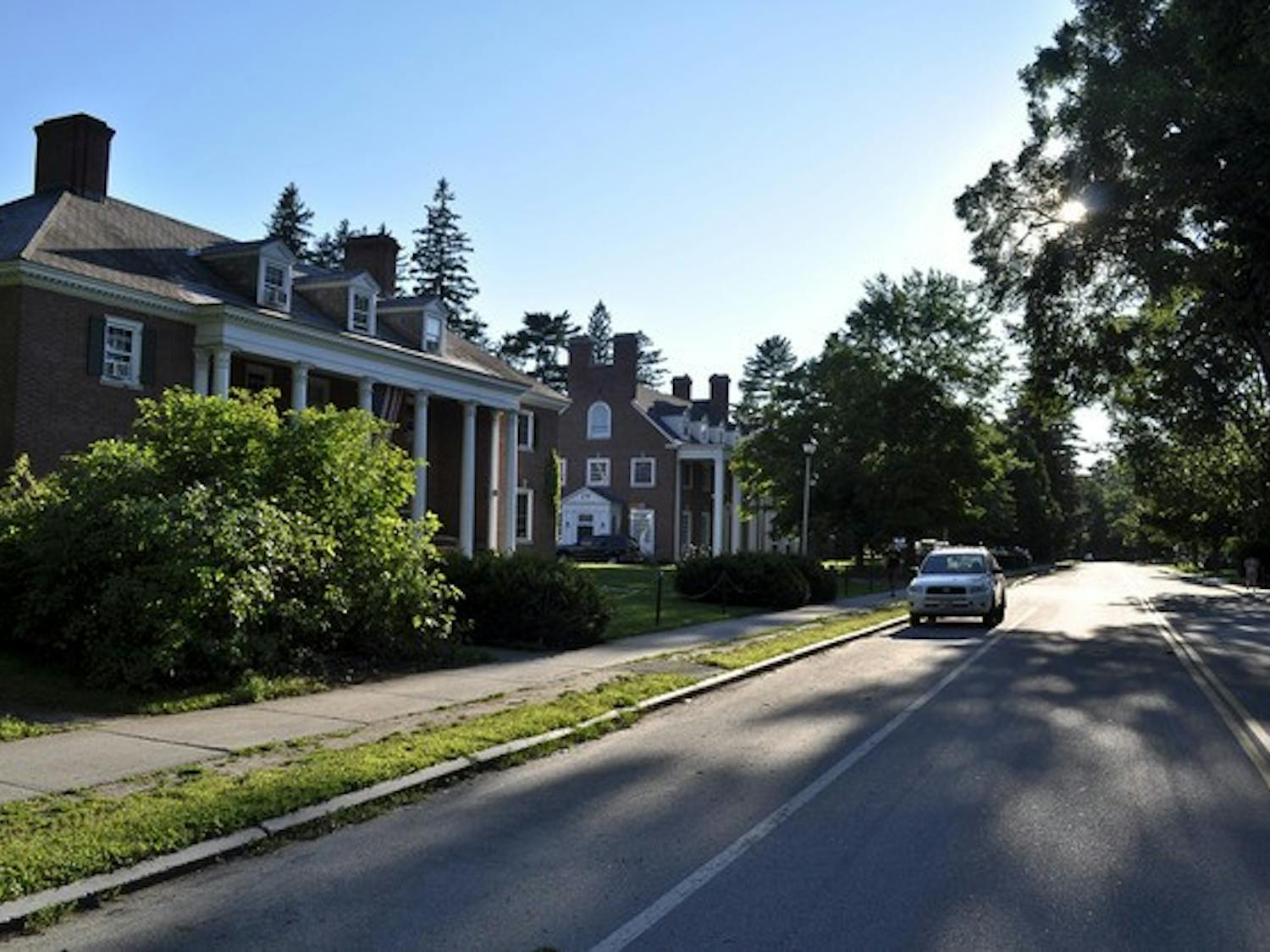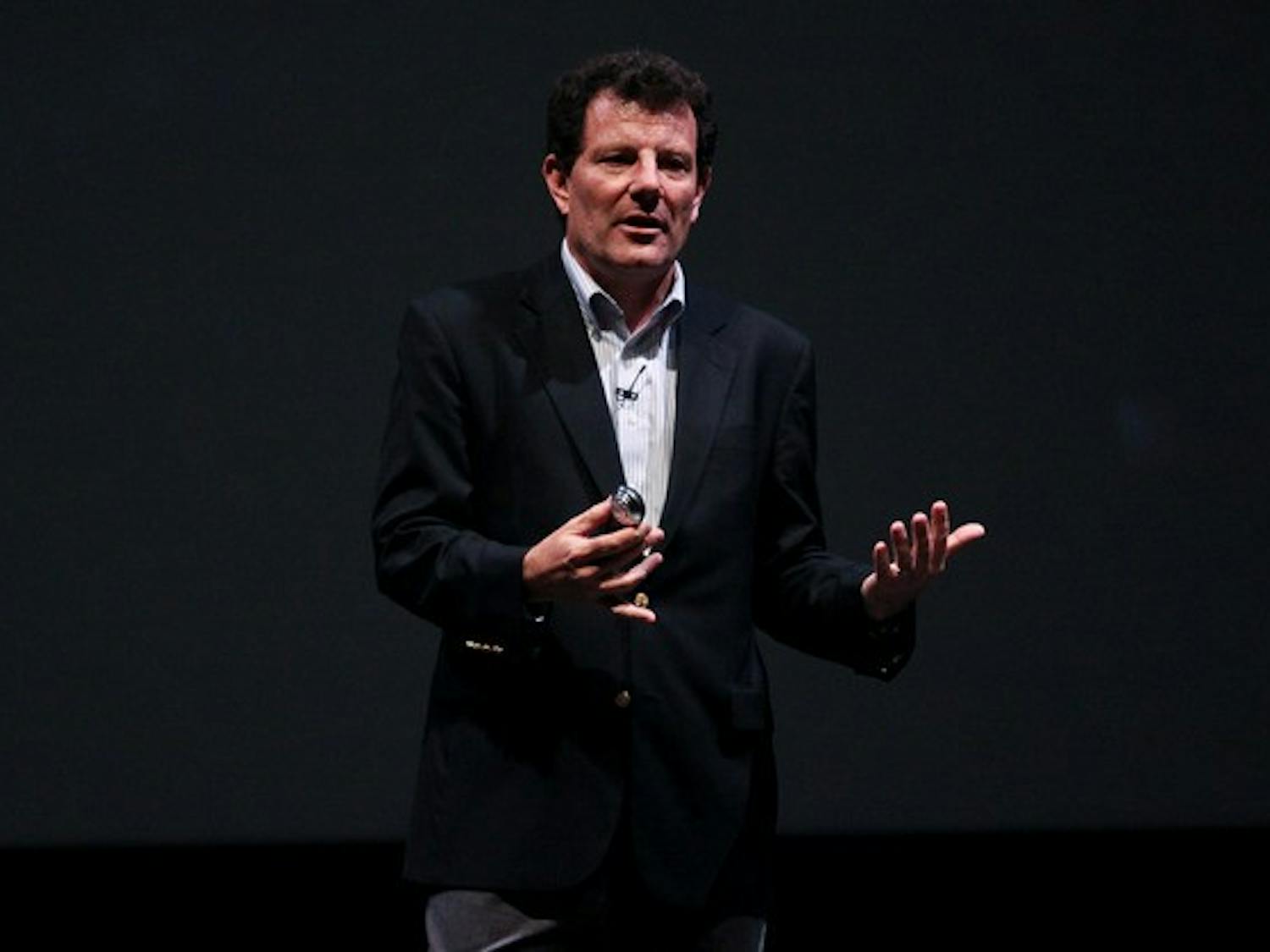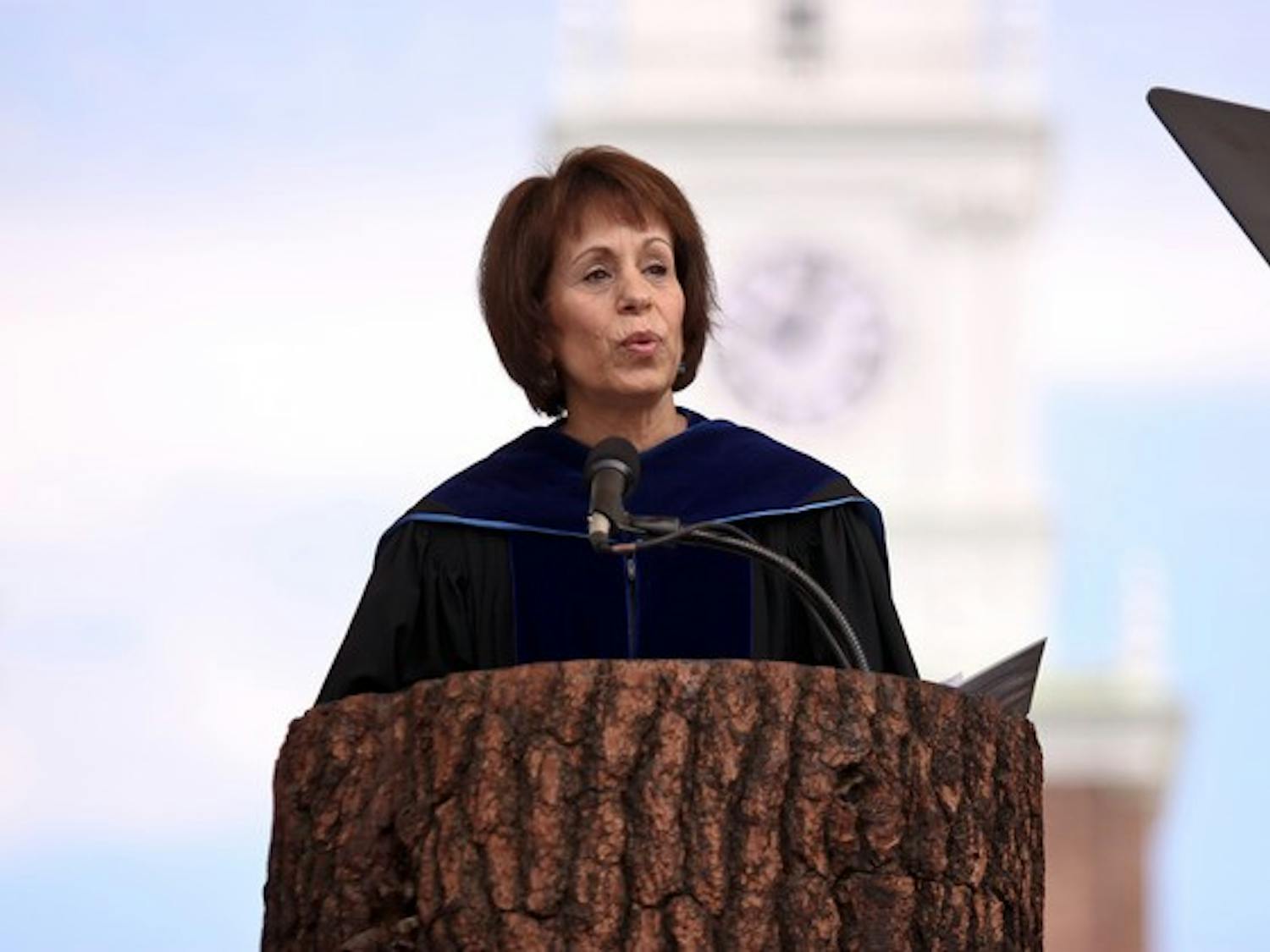News
Correction appended
Sharing the common bond of graduating as some of the first women to attend Dartmouth, psychotherapist Martha Hennessey '76, author Nessa Flax '76 and minister Ann Beams '77 discussed qualities of leadership in front of approximately 80 women in Collis Common Ground on Tuesday night.
The event, the first of the four-part "Women's Leadership Series," was organized by Women's Forum, an organization founded during Spring term that aims to initiate dialogue and promote community among female students at the College, according to the organization's summer co-directors Zheng-Yi Yang '14 and Anoush Arakelian '14.
Hennessey, who was raised in Hanover, said that she wanted to go to Dartmouth when she was younger despite constant reminders that the College only accepted male students.
After Dartmouth became coeducational in 1972, Hennessey said she approached admissions officers and told them she wanted to be the first woman to apply to the College.
Hennessey initially enrolled at Vassar College to study psychology but transferred to Dartmouth for her sophomore year.
Hennessey commended former College President John Kemeny for his efforts to integrate women into the Dartmouth community, despite a College culture that was generally unwelcoming to females at the time.
"[Kemeny] truly believed in coeducation, and he was going to make it happen come hell or high water," she said.
The prevailing opinion during that time was that women needed to "look, act and behave as much as possible like Dartmouth men," she said.
"I had professors who were not supportive but degrading," she said, citing an occasion when one professor refused to acknowledge women as anything but "Smith dates," referring to the all-female Smith College in Massachusetts.
Despite these challenges, Hennessey said her Dartmouth experience helped her develop leadership abilities.
"I learned at Dartmouth that standing up for myself was an important thing, that in the end people would respect me," she said.
Hennessey also advised the audience to support and celebrate each other as women of Dartmouth.
"If you try to be like men, all you're doing is being as dumb as they are," she said, criticizing instances of hazing and binge drinking at the College.
Flax, author of the book "Voices in the Hills: Collected Ramblings from a Rural Life," encouraged attendees to develop their own definitions of leadership and said that good leadership is extremely rare because leaders often try to protect the status quo and feel threatened by change.
"If you are driven by ego rather than passion, your leadership will fail," she said.
Flax, who also transferred to Dartmouth during the middle of her college career, said that she did not receive any encouragement from her deans to extend herself academically.
Her book was published in 2012 with encouragement from members of the Dartmouth faculty, she said.
"Don't let anyone talk you into doing anything you are not passionate about," she said.
Beams, a minister at the Valley Presbyterian Church in Brookfield, Conn., said that the College was a very "traditional" place when she was a student.
Few women attended the school, and many wondered how they would adapt to the already established culture, she said.
Beam said that it was relatively easy to join student groups and most people were "personally welcoming."
Beam also said that most professors at the College during that time were supportive.
"The professors treated me like a student and expected me to prove myself on my own," she said.
Students who attended the event said they enjoyed hearing about the experience of women who attended the College when it first become coeducational.
"They were very straightforward about their opinion and their experience at the school," Winnie Yoe '14 said.

